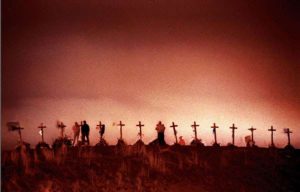This year, April 20th was Easter. So that is my excuse for not remembering the Columbine High School tragedy on that date.
Re-reading my own book reminded me. The first chapter is about school safety and discipline. These are tough topics to cover in a short blog but here is the gist of it….
Misconduct —be it disrupting a class, bullying, or outright violence—is a symptom. We would be foolish to think it will ever go away completely; we’d be wise to recognize and identify the underlying causes as soon as a problem is acknowledged. We shouldn’t just look away and think things will get better without considerable effort.
Many school and community people do understand that the best thing we can do is prevent behavioral problems. The means aren’t easy, but the end result is crucial to existence of a civil society.
The school climate and classroom conditions that are conducive to learning are the same climates and conditions that prevent bullying and other disruptive behaviors. Creating the right learning environment (where it doesn’t exist) and continually fostering that environment is the best we can do.
So how much attention is the public giving to these issues of such importance?
Not enough. Common Core — and the whole standards, testing, accountability, technology movement — dominates the nation’s reform policies. They are failing to reform anything.
“Standards” are being confused with expectations. And “standards” are being given unjustified priority in education reforms. Money follows priorities. Who sets the priorities is key.
If we are going to talk about “expectations”,…
…” they should be about ideas like the ones offered by Carl Bosch in Schools Under Siege: Guns, Gangs, and Hidden Dangers (1997). He recommended that we “hold high expectations” of students. But he asked that we “clearly define expectations of respect, dignity, and responsibility.”
These are “standards” of behavior the public schools system should feel obligated to promote.
My notes from back in 1999 indicated Bosch stressed that primary prevention of discipline issues resides in:
1) uncovering the reasons behind inappropriate behavior,
2) the proper training and teaching of the skills children need, and he stressed that
3) consistency and fairness were important qualities for children to learn that adults should model.
What action will we take today?
“In nature there are neither rewards nor punishments – there are consequences.”
Robert Ingersoll
Today, I hope people will step back a moment to remember and consider what is important. And we should be thankful that some still remember the tragedies and that many still work towards solutions — every day.


